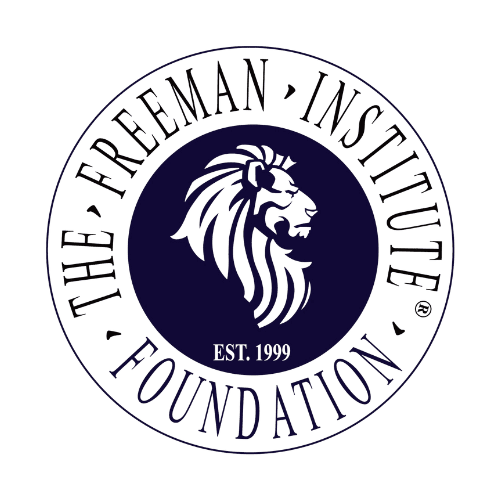
Conflict Resolution Program

Different groups have different needs. The Conflict Resolution seminar experience is meant to be an interactive experience in a fun, non-threatening atmosphere. The following is an option available to interested groups:
During the afternoon, participants can experientially understand more about dealing with Conflict Resolution by playing the KnowMe™ game with any number of groups of four to six -- with a debrief exercise after everyone is finished. This highly-interactive game is based on the Disclosure/Feedback model of awareness known as the Johari Window (click to view more about the game), named after Joseph Luft and Harry Ingham. This award-winning game has been used in over 20 countries by a wide range of organizations and is specifically designed for establishing trust and building relationships in the workplace.
B O T T O M L I N E B E N E F I T S
Immediate and long-lasting!
1. Each participant has a better understanding of his or her conflict resolution style.
2. Reduction of the potential for conflict or power struggles
(preventive maintenance vs. crisis management).
3. Higher morale and greater productivity.
4. Better listening, communication and mediation skills.
5. Greater sensitivity to work force diversity.
6. Tools for influencing an emotionally safe climate.
7. Working with change; not against it.
8. Knowing how to approach different people and situations.
9. Implementation of change in a win/win situation.
10.Enhancing self-motivated work teams.
11.What works and what doesn't work in terms of motivation.
12.Dealing more effectively with difficult behavior.
13.Viewing conflict as natural and positive.
14.Making "mutual-benefit" agreements.
15.How to open up options for mutual gain.
16.Understanding why it's important to focus on the future first, then the past when dealing with conflict.
17. Identifying the three areas of potential conflict which are as predictable as the law of gravity in any
organization.
Determine your Conflict Resolution style
PROCEDURE - How you respond to rules set by others
PEOPLE - How you interact and attempt to influence
PROBLEMS - How you approach conflict and challenges
PACE - How you respond to change and activities
NEEDS ASSESSMENT TO DETERMINE HOW TO CUSTOMIZE PROGRAM
P R O G R A M O V E R V I E W
75% of the focus of this seminar will be on the internal world of the participant.
25% of the focus will be on how participants interacts with others.
Generic full day version with appropriate breaks
* Participants share the best part(s) and most challenging aspect(s) of their jobs (if smaller group).
* Presenter introduces himself and the purpose of the program.
* Humorous concepts illustrating the reality that people are different; predictably different.
* Explore the five contributing factors to personal conflict resolution styles:
i. Heredity
ii. Childhood role models
iii. Birth order
iv. Physical characteristics
v. Experiences
* Emotional pain -- the great modifier of human behavior.
* Administer the Conflict Resolution Questionnaire -- "How Do You Deal With Conflict?".
* Learning from the survey -- Guidelines for conflict resolution.
* The differences between power and influence in conflict resolution.
* Johari Window -- How trust and mutual respect are built up or broken down in an organization before,
during and after conflict.
* How personal Blind Spots and Mask effect leadership/ followership styles and conflict resolution.
* Peeling the layers of the onion skin to get to the core issues of conflict resolution:
i. Gender issues
ii. Cultural diversity
iii. Generational influences
iv. Professional status
v. Personality style
* Administer profile material
* Overview of the universe of the four dominant conflict resolution styles and how each style:
i. Responds to or reacts to emotional pain
ii. Seeks to control his or her environment
iii. Leads and follows
iv. Makes decisions
v. Communicates
vi. Deals with change and conflict
vii. Processes information
* Three main areas where conflict generally erupts, combined with concepts for preventive maintenance
-- plus skills for managing oppositional behavior after it has escalated.
* In-depth study of each conflict resolution style
i. Major fears
ii. Natural and adaptive styles when confronted by conflict, stress or pressure.
iii. Dynamic drives
iv. Needs-motivated behavior and communication language
v. Tools for working effectively with each style
vi. How personal dominant and sub-dominant styles can compliment vs. cause internal stress
vii. Drawing the best out of others at work and at home -- lifestyle change
* Learning to "read" one's graph.
* Now what do we do with the information?
* Time for feedback, personal responses to the accuracy of the information, and specific questions.
* Help to develop action and accountability plans.
* Allowance for one-on-one time with instructor.
Let's Start the Conversation!
Thank you for your interest in the Freeman Institute Foundation! We are thrilled to connect with you and explore how we can support your organization's growth, leadership, and personal development needs. Please take a moment to fill out the contact form below, and we'll be in touch with you soon.
Contact Us
Call us
(410) 729-7800Send us an email
[email protected]